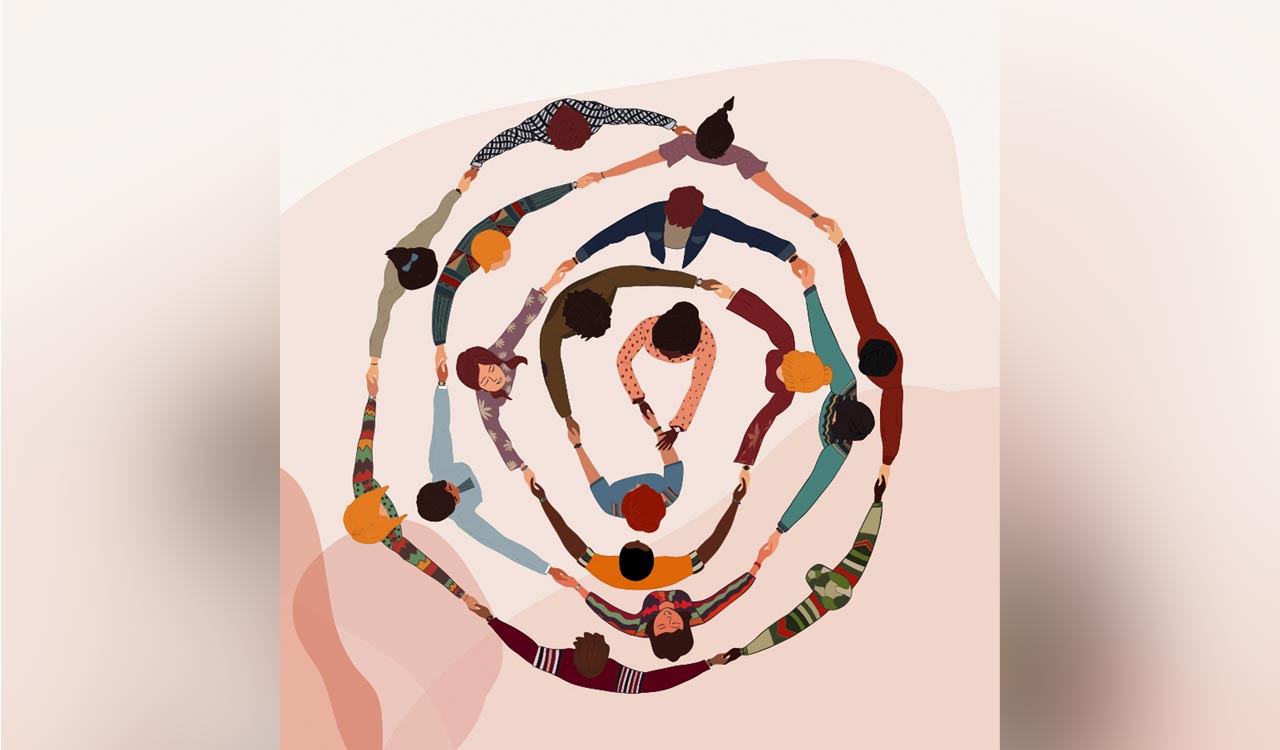
As we usher in the New Year, aspiring to live free from schismatic identities is a noble resolution
Published Date - 11:45 PM, Sun - 31 December 23
By B Maria Kumar
Do New Year resolutions really matter? Yes, they do, and at least in my case, they worked wonders. I used to be a chain smoker, puffing away on six packs of cigarettes a day back in the early nineties. One day, it hit me that my love affair with cigarettes was wreaking havoc on my professional life. So, in the daring days of mid-1996, I decided to break up with my smoky companion. I made a grand announcement to my better-half, colleagues and friends. I stuck to my resolution like a champ for about six months, but then I proudly declared my return to the nicotine track. As the days rolled on, my daily intake escalated to a whopping nine packs, outdoing even my Hollywood idol, Omar Sharif, who was famous for his eight-pack habit.
But here’s where the plot thickens. Cigarettes weren’t just causing my restlessness and turning me into an insomniac; they were also playing a part in some embarrassing moments, leaving holes on my uniform during crucial official meetings and ceremonial parades. Fast forward to the brink of the new millennium, and a brilliant idea struck me at the smokiest cocktail party on the last day of 1999 — why not make a New Year resolution to kick the smoking habit? The morning after, armed with determination, I faced my inner cravings and primal urges. My willpower triumphed over temptation, and here I am, over two decades later, revelling in a smoke-free life. The credit for this victorious journey? All goes to that one impactful New Year resolution!
No Routine Goals
New Year resolutions play a pivotal role in shaping the trajectory of our personal and professional lives. Appreciate them not merely as routine goals but as targets set within a specific timeframe. Reflecting on the essence of management science, which emphasises goal execution, New Year resolutions harmonise with these principles. However, the beauty lies in our unique approaches to accomplishing the objectives.
These resolutions aren’t a recent phenomenon, having been embraced with enthusiasm throughout history. Julius Caesar, credited with instituting January as the first month in the calendar, chose it in homage to Janus, the Roman mythological god of doors. Janus, with two faces symbolising the past and the future, inspired the idea of auspicious beginnings. Setting resolutions on January 1st, a tradition rooted in this belief, manifests the timeless judiciousness that commencing a task is, in itself, halfway to completion.
Transformative Chapter
While some, including celebrities, chart their course based on personal whims, others eagerly anticipate the New Year to kick start their meticulously planned endeavours, hoping the freshness of the first day of the year will usher in a transformative chapter. In ancient times, kings scheduled expeditions based on the positions of celestial stars and planets, a practice persisting even today in many family and business affairs. As modernisation gradually reaches rural areas of developing countries, New Year celebrations rival major festivals. Reflecting on Janus, whether for sweet memories or bitter moments of the bygone days, the lessons learned pave the way for a more optimistic future. The forward-facing Janus at the year’s outset brings a thrilling journey with new resolutions, ideas, challenges and opportunities.
Consider Akira Kurosawa, the renowned Japanese cinema director who selected January 1st, 1962, to release his blockbuster film, Sanjuro. The movie’s nameless protagonist, echoing Kurosawa’s earlier work in ‘Yojimbo,’ conveyed a profound message — the universality of humanity. This innovation left an indelible mark, influencing Hollywood’s Dollar trilogy with Clint Eastwood’s heroic role having no name in all the three films. The theme of the nameless protagonist resonates as a powerful call for global unity, especially in today’s tumultuous world. Kurosawa’s vision, epitomised by Sanjuro, urges us to recognise the oneness of humanity and unite under a common name — Homo sapiens. In a world divided by labels and conflicts, embracing this singular identity becomes paramount for peace and unity.
Challenging Goal
New Year resolutions span diverse motifs, from fitness and education to business excellence and scientific breakthroughs. Yet, one profoundly challenging goal, embodied by Kurosawa’s Sanjuro, is embracing a singular humanity. Kurosawa’s choice of showcasing a nameless character on January 1st signifies a resolution beyond the ordinary. In today’s world, strained relations rooted in regional, racial, religious, ideological, linguistic, caste and sectarian identities give rise to complicated global issues. Imagining nations like the US and China viewing each other as countries of human beings could have averted the present Cold War tensions.
Ongoing conflicts between regions like Russia and Ukraine or Israel and Palestine highlight the turmoil caused by rigid, fabricated identities. The African continent grapples with internecine civil strife and brutal warfare, fueled by erroneous identity complexes, across more than two dozen countries, as observed in the current state. The South Caucasus stands out as another troubling territory marked by identity-driven lethal clashes. Myanmar has since long been enduring the ravages of terrifying ethnic violence. More recently, Taiwan has emerged as a flashpoint, heightening concerns in the Indo-Pacific belt. Notably, escalating tensions in many parts of the world result from divisive affiliations.
The root of this crisis lies in prioritising human-made group identities over a shared human identity. To overcome these perplexities, discarding artificial identities becomes a necessary and worthwhile New Year resolution, as Kurosawa demonstrated. Algerian poet Mouloud Benzadi rightly asserted that borders, nationalism and identity are humanity’s worst enemies. Ayn Rand, the Russian-born American philosopher, emphasised the primary and ultimate identity of being human. Rejecting false identities fosters fraternity and strengthens bonds for safe and mutual coexistence. As we usher in the New Year, aspiring to live free from schismatic identities is a noble resolution, aligning with Kurosawa’s timeless wisdom.





Leave a Reply